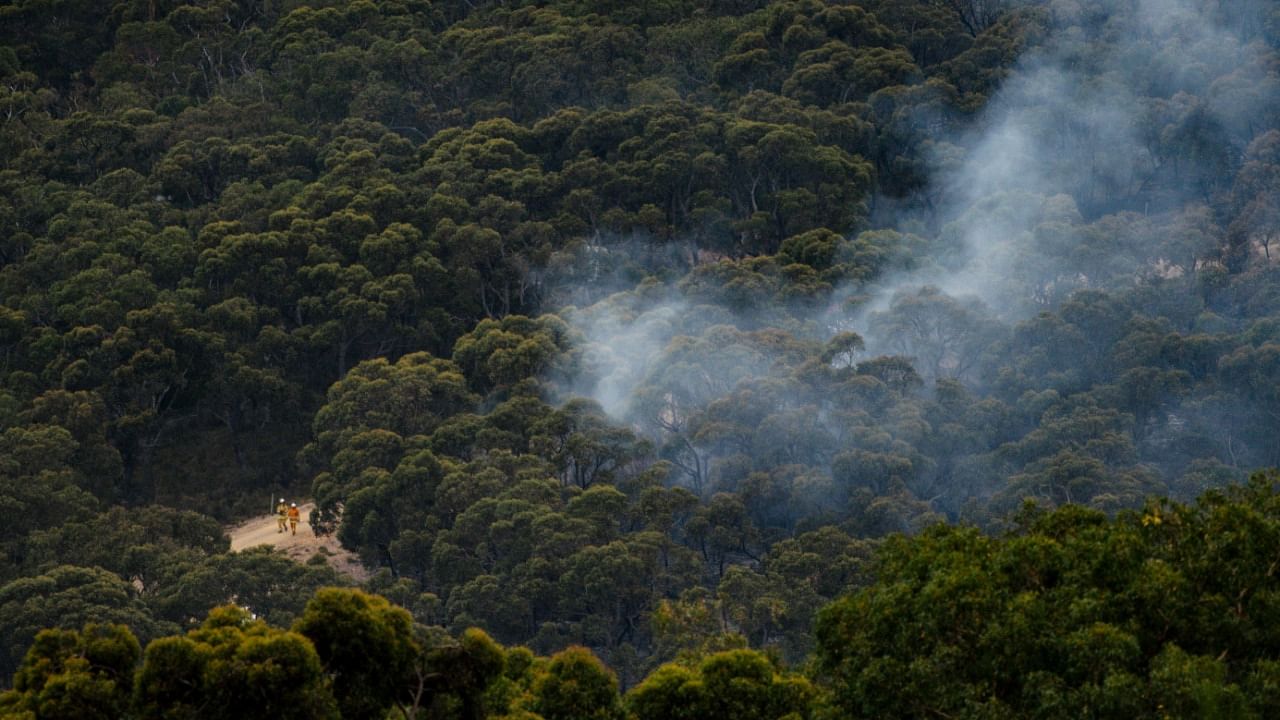
Searing heat scorched southeastern Australia on Monday, stoking bushfires near the city of Adelaide and driving crowds to the beaches on an extended long weekend in what has mostly been a wetter than normal summer.
Six firefighting aircraft and crews on the ground battled blazes in the Adelaide Hills, where two homes in were damaged or destroyed, state officials said, adding that investigations were underway into the cause.
"There is still work to be done to get this under control," Australian Prime Minister Scott Morrison told reporters.
The fire risk was downgraded on Monday, with residents urged to "watch and act".
"It was good that we didn't get the wind that was actually forecast," South Australia Country Fire Service deputy controller Yvette Dowling told reporters.
A cool change, with rain, was expected to ease fire conditions on Monday afternoon, she said.
Temperatures soared above 40 degrees Celsius (104°F) across the southeast, but dropped sharply as a cool change moved in earlier than expected in Victoria, where temperatures dropped about 10 degrees in 10 minutes, the Bureau of Meteorology said.
The blazing heat is expected to continue for another day in Australia's biggest city, Sydney, in the state of New South Wales, before temperatures fall back to the mid-20 degrees Celsius.
The overall fire threat in Australia has otherwise been muted this season in stark contrast to last year, dubbed the "Black Summer," when bushfires killed 33 people and billions of native animals and razed more than 24 million hectares (59 million acres).